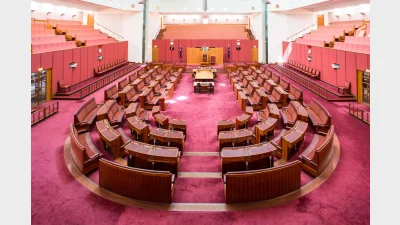Senate committee backs passage of super objective bill ‘as a priority’



The Senate economics legislation committee said it is “encouraged” by the overwhelming amount of support garnered by the objective of superannuation bill and agreed that it should pass “as a priority”.
In a report published on 28 March, the committee noted more than half of the submissions to the inquiry supported the intent behind the Superannuation (Objective) Bill 2023, which was put before the committee in November 2023.
The subsequent inquiry received 28 submissions and conducted one public hearing.
This was in addition to over 40 public submissions received by Treasury when it welcomed the public’s feedback on the draft legislation in September 2023.
“The committee is strongly of the view that a legislated Objective of Superannuation will guide policymakers, the public and Parliament about the importance of the superannuation system as a tool to preserve, grow and deliver income for retirement,” the committee report stated.
It also noted the “high level of support” for the bill’s proposed definition of super – ‘to preserve savings to deliver income for a dignified retirement, alongside government support in an equitable and sustainable way’.
It agreed a legislated objective would “serve as an important accountability tool” and “ensure that short-sighted and detrimental policies are judged and considered by the Parliament accordingly.”
“The committee considers that the bill as drafted will create a clear framework for assessing future superannuation policy initiatives and support a superannuation system aimed at improving Australians’ retirement incomes,” the report observed.
Additionally, Coalition senators Andrew Bragg and Dean Smith on the committee said they will not be opposing this legislation, as it is “not urgent, non-binding and a distraction” from present cost-of-living pressures.
However, in the report, the senators noted various issues with the proposed legislation.
“Firstly, it is curious that the government has decided to push through a legislated objective for superannuation alone, but not a legislated objective for the retirement system as a whole,” they stated in the report.
Additionally, they highlighted how the 2020 Retirement Income Review, commissioned by former treasurer Josh Frydenberg and chaired by Mike Callaghan AM PSM, suggested “an objective of the retirement income system” and an agreed “role of the pillars … in terms of how they can contribute towards achieving the system’s objective.”
“The review’s suggested objective includes certain terms that have been adopted by the government in the proposed Bill, but they have been repurposed specifically as an objective for superannuation alone,” the Coalition senators wrote.
“Several witnesses who appeared before the inquiry emphasised how setting an objective for the retirement system overall was more important than just setting an objective for superannuation.”
Their recommendation was for the government to develop a whole-of-system retirement income system objective, outlining the objective of the retirement income system and the roles of the pillars, as suggested by the 2020 Retirement Income Review.
“Factors impacting home ownership in retirement should be considered as part of the development of this objective,” they suggested.
Recommended for you
Insignia’s Master Trust business suffered a 1.9 per cent dip in FUA in the third quarter, amid total net outflows of $1.8 billion.
While the Liberal senator has accused super funds of locking everyday Australians out of the housing market, industry advocates say the Coalition’s policy would only push home ownership further out of reach.
Australia’s largest superannuation fund has confirmed all members who had funds stolen during the recent cyber fraud crime have been reimbursed.
As institutional investors grapple with shifting sentiment towards US equities and fresh uncertainty surrounding tariffs, Australia’s Aware Super is sticking to a disciplined, diversified playbook.













